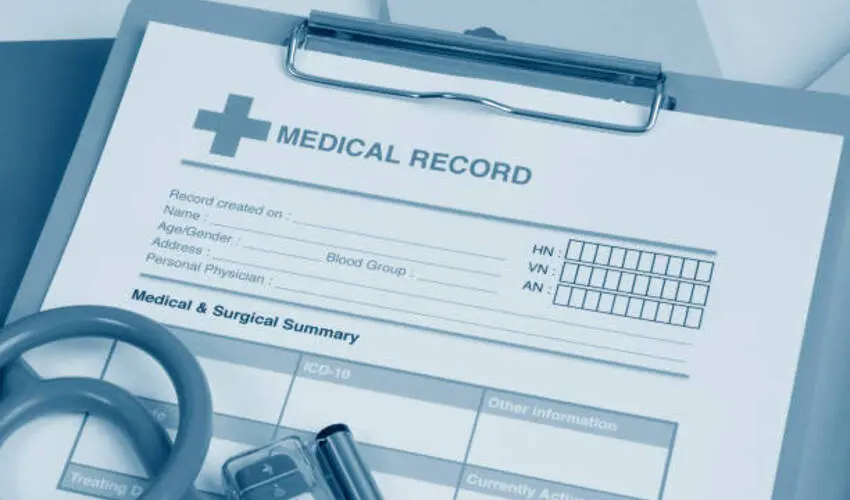A Medical Record Assistant plays a key role in every hospital and clinic. They manage health records, keep data safe, and help doctors get the right information. Their work is important for patient care, billing, and legal safety. To do this job well, a Medical Record Assistant needs certain skills. These skills help them handle data, follow rules, and stay organized. Here are the top 10 skills every Medical Record Assistant should have in 2025.
1. Strong Attention to Detail
Accuracy is very important in medical records. One small mistake can lead to big problems. A Medical Record Assistant must check every detail. They should spot errors and fix them quickly. They also need to review names, dates, codes, and treatment notes with care.
2. Knowledge of Medical Terminology
Medical terms can be long and hard to understand. A Medical Record Assistant should know the basic terms used by doctors and nurses. They must understand diagnoses, treatments, lab reports, and abbreviations. This helps them file records correctly.
3. Data Entry and Typing Skills
Medical records must be entered into computer systems. That’s why typing speed and accuracy matter. A good Medical Record Assistant can type quickly and with few errors. They must enter patient data into systems without delay. Fast typing helps them stay on schedule and reduce backlogs.
4. Familiarity with EHR Systems
Today, most records are digital. Clinics use Electronic Health Record (EHR) systems like Epic, Cerner, or Meditech. A Medical Record Assistant must know how to use these platforms. They should be able to find, edit, and save files in the system. Training in EHR use is a great advantage.
5. Understanding of Privacy Laws
Medical records are private. Patients trust clinics to keep their information safe. A Medical Record Assistant must know privacy laws like HIPAA or GDPR. They should never share data without permission. They must follow rules about access, sharing, and storage.
6. Organizational Skills
Records come in large numbers. Without good organization, it’s easy to lose or mix them. A strong Medical Record Assistant keeps things in order. They sort, label, and store files correctly. They also track what’s missing or needs updating. The organization saves time for everyone.
7. Communication Skills
A Medical Record Assistant works with doctors, nurses, patients, and billing teams. They must explain problems clearly and ask the right questions. Good communication helps avoid delays or confusion. They may also help patients understand what documents they need to provide.
8. Problem-Solving Ability
Not all records are perfect. Sometimes data is missing or unclear. A good Medical Record Assistant finds smart ways to fix these problems. They look for answers, ask for help, or cross-check with other files. Problem-solving keeps records clean and complete.
9. Time Management
This job often includes tight deadlines. Records must be updated quickly after each patient visit. A Medical Record Assistant must manage time well. They should finish daily tasks without rushing or making mistakes. Good time management also helps them handle urgent requests.
10. Basic Coding and Billing Knowledge
Knowing basic medical codes is a big plus. It helps with insurance claims and billing. A Medical Record Assistant may need to enter CPT, ICD-10, or HCPCS codes. If they know this already, it saves time and reduces billing errors.
Bonus Skill: Tech Comfort
More clinics now use digital tools and cloud software. A smart Medical Record Assistant stays open to learning new tech. Being comfortable with software updates, backups, and remote tools is helpful.
How to Improve These Skills
If you want to become a strong Medical Record Assistant, here are some tips:
- Take short courses in medical terms and health records
- Practice typing every day
- Watch EHR system tutorials online
- Learn about HIPAA or local privacy laws
- Use planners or apps to organize tasks
- Read real examples of medical charts
You don’t need a long degree to do well. With training and practice, anyone can build these skills.
Why These Skills Matter
Hospitals and clinics depend on accurate data. If a record is wrong, the doctor may give the wrong treatment. Billing departments also rely on clean records. Mistakes lead to rejected insurance claims. A skilled Medical Record Assistant keeps everything running smoothly. They protect patient safety and help the clinic earn trust.
Final Thoughts
A Medical Record Assistant is more than a file handler. They are a vital part of the care team. With the right skills, they can boost clinic performance, protect data, and reduce doctor stress. In 2025, healthcare is fast and digital. Every Medical Record Assistant must keep learning and growing. If you work in this field, start building these 10 key skills today. It will help you grow, get hired, and make a difference in healthcare.

